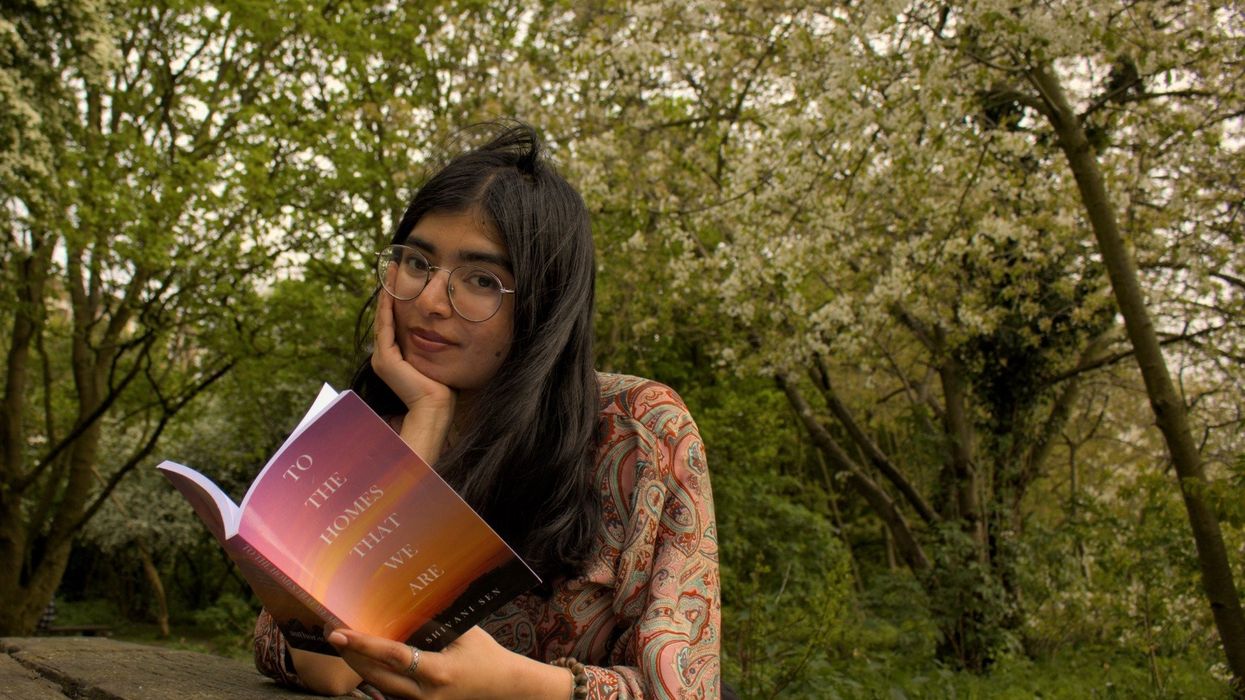GROWING up in a musical household in New Delhi filled with Rabindra Sangeet and old Bollywood classics deeply shaped Shivani Sen.
Starting her Hindustani classical vocal training at the age of four, music became a spiritual and meditative journey for her. Now a versatile poet, published author, vocalist, and composer, Shivani has channelled 21 years of music training into creating art across multiple platforms. Her unique approach bridges Indian classical music, western indie pop, and poetry, weaving themes of nostalgia, grief, migration, healing, and hope into her work.
Having performed extensively across the UK, the London-based artist spoke to Eastern Eye about her distinctive music, inspirations, challenges and future projects.
How would you describe your brand of music?
Soulful. My music combines the intricate and aesthetic elements of Hindustani classical with the relatable and structured qualities of western pop. I aim to blend genres, and my sweet spot as a vocalist is the fusion of Hindustani classical and western indie pop.
Which of your songs is closest to your heart?
My debut single, You’re Not Coming, holds a special place in my heart. It’s my first attempt at blending Hindustani classical with western pop, and I’m proud of how seamlessly the genres come together and my strengths as a vocalist and composer. The song’s themes of loss and heartbreak are universal, and I feel deeply connected to its story.
What has been the most memorable moment of your music journey so far?
Being featured as the BBC Introducing Asian Network artist of the week for my debut single was incredible. That recognition for my first release validated my work as a songwriter, singer, and composer. It was a huge confidence boost and a pivotal moment in my journey.
How does Indian classical singing influence your English tracks?
On stageHindustani classical deeply influences the melody, emotion, and aesthetics of my songs. Ragas are incredibly expressive, and they translate beautifully into the mood of my tracks. As a poet and author, I also draw from my writing to shape the storytelling in my music.
You are versatile, but what genre do you prefer?
I naturally gravitate towards Hindustani classical because it’s been part of my life for so long. It feels like I’ve absorbed the art form completely – I hum ragas almost all the time and feel most at home with them.
How important is live performance to you and what has been your most memorable show?
Live performances are vital for connecting with audiences and showcasing my work in an intimate setting. They allow me to improvise and highlight the versatility of Hindustani classical music. My most memorable performance was at the High Commission of India in London in October 2024. Performing a 90-minute set at such a prestigious venue with amazing musicians was a highlight of my career.
What challenges do you face regularly as a young independent artist?
Visibility is the biggest challenge. Working without a label means I must work twice as hard to get my music noticed. It’s especially tough when you’re creating a unique genre that doesn’t fit into conventional categories.
What can we expect next from you?
I’m working on a new single and an album slated for release in 2025. I’m also completing my second poetry book, which will be published in the new year. You can expect lots more cross-cultural and cross-genre art.
What music dominates your personal playlist?
It’s an eclectic mix – Fred Again, Adele, Kaushiki Chakraborty, Shubha Mudgal, Gracie Abrams, Akshara, Billie Eilish, Ajay Chakraborty, and Pandit Hariprasad Chaurasia. This variety keeps me creative and inspired.
Who is your music hero?
Kaushiki Chakraborty for her intricate vocals and commanding presence. I also admire Fred Again and Jacob Collier for their innovative compositions and ability to push boundaries.
Who would you love to collaborate with?
UK-based DJ, producer, singer and songwriter Fred Again tops my list. I admire the nostalgic and melancholic elements in his music, especially his Actual Life albums. I think Hindustani classical music could add a rich layer to his sound. I look for collaborations based on emotional resonance, so blending Fred Again’s production style with my music would be phenomenal.
What inspires you creatively?
Nature, sound, spirituality, and travel. Heavier life experiences often inspire my poetry and music when the time feels right. As a creative, I find inspiration everywhere – in the mundane and the extraordinary alike. When you are creative, you don’t need to go hunting for inspiration very often. You find it living inside everything that exists and everything that you do, all the time.
Why do you love music?
Music is as essential to me as breathing. It’s the fabric of my being, keeping me alive and allowing me to express myself fully. Music is my lifeline – fundamental, necessary, and intrinsic to my existence.












